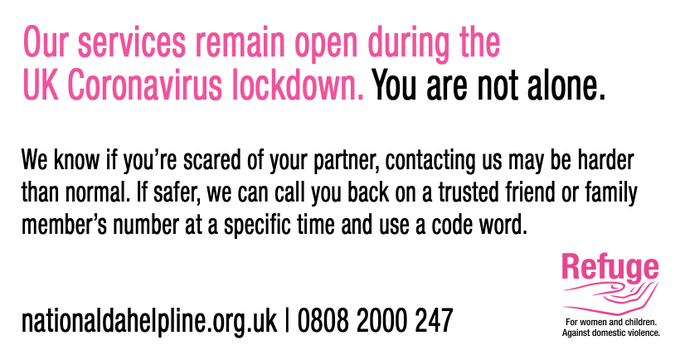
Groundhog Day is more enjoyable as a film than a lived reality, isn't it?
Last March, when the UK first went into lockdown, most people thought this coronavirus malarkey would be over in a couple of months. There was also a certain novelty about the whole thing - people were getting creative, learning new skills and living life at a slower pace.
Fast-forward to January 2021 and we are beginning our third lockdown. And we are fed up of it all.
Advert
The thought of working from home, baking sourdough or having a virtual house party doesn't offer the shred of the comfort it did two lockdowns ago; in fact, it feels more like a regrettable return to square one.
But while this particular place and time can feel overwhelmingly bleak, there is cause for hope. The vaccine is being rolled out as we speak, the days are getting longer and the year ahead should be much better than the one we've left behind.
In the meantime, here's some expert advice to help you overcome the greatest challenges posed by the lockdown ahead of us.

Advert
Mental health and staying positive
If you ask me, January is a bit s*** at the best of times. The festivities have passed, but winter is still here. Plus you're more broke and porky than ever.
This January is the mother of grim Januarys - but that simply means it's more important than ever to focus on the positives, Dr Nick Earley told LADbible.
That's easier said than done though, so Dr Earley - head of psychology at Helix Resilience - has shared five top tips to help you stay positive. They are as follows:
Advert
1. Get moving - Set a realistic activity goal each day and commit yourself to this, whether it's a 15 minute walk around the block, a mediation session, or a run. Set achievable goals and dedicate time to complete them.
2. Talk - Take the time to talk to your friends, family and neighbours over the phone or video calls. You will not only improve your mood but through a thoughtful act you may improve the mood of the person you speak to.
3. Break up your day and take regular breaks - If you were in the office you would likely take a coffee break every few hours, practice the same habits while you are at home. If it helps schedule alarms on your phone to remind you it is time to take a break.
4. Start a new activity (or pick up an old hobby you once loved) - You may have never considered crocheting, doing jigsaw puzzles, or learning the piano but these are all activities that will boost your mood and give you something positive to focus your brain on.
Advert
5. Recognise when you begin to overthink or feel negative thoughts - It may sound easier said than done but by bringing awareness to your thought patterns and possible triggers (such as reading the news) you can begin to control your thought processes. If you find yourself struggling with worrying thoughts then recognise this and take action, whether that's calling a friend or reading a book - distract yourself with something positive and constructive.
You can find further tips to help tackle the mental health impact of lockdown and a list of the UK's leading mental health helplines here.

Physical wellbeing
Advert
It might be tempting to sprawl out on the sofa and binge your way through Netflix during lockdown - and you know what, it may well offer some pleasant relief for an afternoon, or maybe even a weekend.
But in the long run, keeping active is vital to your physical and mental wellbeing, health, sleep and productivity.
Lockdown rules run counter to this though, with gyms closed, sports banned and working days almost entirely sedentary.
Thankfully for us, personal trainer Badrul Islam has teamed up with Feel Good Contacts to share some top tips to keep you moving, even when the world is standing still.
He said: "Once you're back to working from home after the festive break, find a co-worker or friend with similar New Year health goals so that you can support each other. It is easier to stick with your plan if a buddy is going through the same resolution.
"When working at your desk (or dining table), if it's possible, stand up and do your work. Standing uses more muscles and burns more calories than sitting and it's good for your back and posture.
"Try and break up multiple chunks of sitting time - set an alarm if you feel you need it - with some movement by taking trips to the kitchen. The general rule is to take a walk at least every half an hour to get a glass of water."
He continued: "When you're stuck with some dead time, for example, whilst waiting for the kettle to boil, don't be embarrassed to do some light exercises like calf raises, squats or lunges.
"If you can manage to brave the cold weather, then go for a walk in your break. Use your longer lunchbreak for a workout. Go to your local park for a power walk or run.
"If you're new to running, then download the NHS's Couch to 5K app podcast. It will ease you in gently."
Apps such as Strava can also help you track your progress, while Joe Wicks has announced he will be bringing back his online PE classes to keep you moving in your living room.
You can also read a chiropractor's top tips to help protect your back while working from home here.

Dating and relationships
Clearly, it's a bloody nightmare trying to find 'the one' when you're not even allowed out of the house. But thank the lord we have modern technology, eh? Not only has it made lockdowns immeasurably more bearable, it's also enabled singletons to continue dating, albeit remotely.
Maria Sullivan, dating expert and vice president of Dating.com, has shared with LADbible her three top tips to ensure that virtual dates go smoothly. They are as follows:
1. Plan an activity - For example, plan to make the same meal. For this activity, you can both pick a yummy meal to try to make over FaceTime, at the end you can compare whose looks better and if the meals turned out how you thought they would.
2. Have a list of questions to ask - Being prepared is essential, so having a list of questions will ensure the conversation will not have any awkward pauses because no one knows what to say.
3. Make sure you have a strong Wi-Fi connection - While FaceTiming with someone you're interested in, it is important that you have a good Wi-Fi connection, so your video doesn't become blurry and your sound doesn't lag.
But while dating has been hindered by lockdowns, it's not been plain sailing for people in relationships either. The strain on couples who have had to work, teach and live under one roof has been immense, and many relationships haven't survived the pandemic.
Here are Maria's tips to help you sustain a relationship through the pressures of lockdown:
1. Plan a date night - Although it feels like you spend every waking moment together, it is important to put time aside to do something you both enjoy. By finding a time that works for both of your schedules, it will allow both parties to give all their attention and be present in the moment, which will avoid couples growing apart down the road. Lockdown dates may include cooking a new meal together, setting up a makeshift movie theatre in your home and watching a new movie and having a game night with all your favourite games.
2. Prioritise alone time - Being under the same roof for months on end can obviously cause some friction within a relationship. It is always important to take some very much needed alone time, especially if you are feeling overwhelmed. Make sure to dedicate an hour to yourself each night or every other night to be alone and decompress, you can do so by taking a bath or simply reading a book or watching your favourite TV show.
3. Communicate more - Communication is key to any successful relationship and now that we are learning new things about our partners - good and bad - it is important to communicate to your partner how you are feeling so that you can be a strong support system to them while we work to get through this global pandemic.
You can read more advice from a sex expert about how you can keep the spark lit in lockdown here.

Boredom and loneliness
By their very nature, lockdowns make life less interesting and more isolated. You can do fewer things with fewer people.
But this means we have to make extra effort not to go in on ourselves, according to Rosie Weatherley, information content manager at mental health charity Mind.
Speaking to LADbible, she said: "Lockdowns are necessary to protect people from this devastating pandemic, however not being able to socialise in person, either with friends, family or colleagues, is affecting our ability to stay connected with our support networks and can increase feelings of loneliness.
"While loneliness itself isn't a mental health problem, the two are closely connected so it's important to try to maintain your relationships as best as you can. Anyone can experience loneliness and it isn't necessarily linked to how sociable or outgoing you are. We can be surrounded by people - either at home or through work - and still feel lonely.
"Try to make plans to phone or video call friends and family regularly - if you're worried about running out of things to talk about, you could make a plan to watch a TV show together or read the same book and discuss it afterwards, even sharing funny links or photos you've taken can be a good placeholder for physically spending time together."
Tedium as well is something we've all experienced more than our fair share of since Covid-19 cropped up. With spontaneity and variety hard to come by, Rosie recommends shaking up your routine in whatever way you can.
She said: "It may be helpful to adapt your routine for the new restrictions, as trying out a new routine might help to give you a sense of change, especially if you're struggling with how long the pandemic is continuing.
"Although the pandemic may mean that your choices are more limited, try to focus on the things you can change. It might be helpful to list the things you can change on one piece of paper and all the things you can't on another.
"Trying out a new skill or hobby could be beneficial as well as incorporating some daily exercise into your routine. Our physical health and mental health are closely linked so it's important to look after your body as this can have a big effect on your mental health.
"It's also really helpful to try and get as much natural light and nature as you can - even including time in your routine to sit by a window to watch the birds can be beneficial."
And if you don't like birds, then have you learnt Spanish/mandolin/how to make tiramisu yet?

Drink, drugs and addiction
When almost all forms of entertainment and socialising are banned, it's totally understandable if you're tempted to pick up a bottle, or spliff. But we have to be careful not to get trapped in a cycle that can do much more harm than good.
Holly Sexton, a recovery worker at drug, alcohol and mental health charity We Are With You, told LADbible that really simple coping mechanisms can be used to resist temptation.
She said: "Cravings nearly always have a trigger so the first step is recognising what triggers you. It might be you find you want to drink after spending all day inside or after an argument with a loved one. Try to note down what triggers you, then you can start to manage your routine to avoid certain experiences.
"But avoiding triggers altogether is difficult, especially during a pandemic. Cravings can feel unmanageable but they are only thoughts or feelings. Normally they only last an hour at most and sometimes just a few minutes.
"It may help to think of them as a wave that builds up, peaks and then goes away. Try to distract yourself until they pass, this could be through exercising, listening to music, reading a book or simply making a cup of tea - whatever works for you."
She continued: "Another tactic is thinking about what may happen if you give in to the craving. Often it will lead to a train of behaviours that become difficult to stop and which in the long run are likely to make you feel worse. Having this perspective can help you manage short term urges more easily. Also, know that if you don't give into this craving the next one will be easier to manage.
"Finally, if you do end up drinking or using drugs more than you'd like, don't be harsh on yourself. It's important to be honest about how you're feeling. This could be through talking to a trusted friend or family member or reaching out to a support service."
Indeed, if you don't manage Dry January, that's completely understandable. But if you want to give it your best shot, you can read some top tips for going booze-free here.

Domestic abuse
One of the 'reasonable excuses' to leave your home during the lockdown is to flee domestic abuse.
During the previous lockdowns, domestic abuse charity Refuge saw a surge in demand for its services; but despite this added pressure, the charity is still there for those who need it.
Speaking to LADbible, Lisa King, director of communications at Refuge, said: "While we know that lockdown doesn't cause domestic abuse it can aggravate pre-existing abuse behaviours, and abusive partners often use isolation as a form of control to heighten their abuse.
"This will be a very distressing time for the many thousands of abused women and children and Refuge wants to send a very strong message - support is available, we are here for you.
"Since the first lockdown, Refuge has implemented a live chat service so women can contact us in real time and in silence. We know that the window to call for help, ordinarily extremely limited, narrows further during periods of lockdown - so anyone who needs us, who is unable to call for help, can visit www.nationaldahelpline.org.uk, and live chat with our expert helpline team."
If you are in need of help, or are concerned about a loved one who may be experiencing domestic abuse, you can call Refuge's National Domestic Abuse Helpline on 0808 2000 247.
Finances
The true economic impact of the pandemic remains to be seen, with countless businesses forced to close and 'furlough' another one of those words which has shifted from obscurity to the mainstream.
Chancellor Rishi Sunak has announced a £4.6 billion package aimed at keeping business afloat through the third lockdown. The furlough scheme will also continue until the end of April.
You can find out more about the financial support available here.
You can also find food support near you through Marcus Rashford's #EndChildFoodPoverty website here.
Hopefully you've gleaned something from all that anyway. Chins up people - we'll get through this.
Featured Image Credit: PATopics: UK News, lockdown, Mental Health, Interesting, Health

